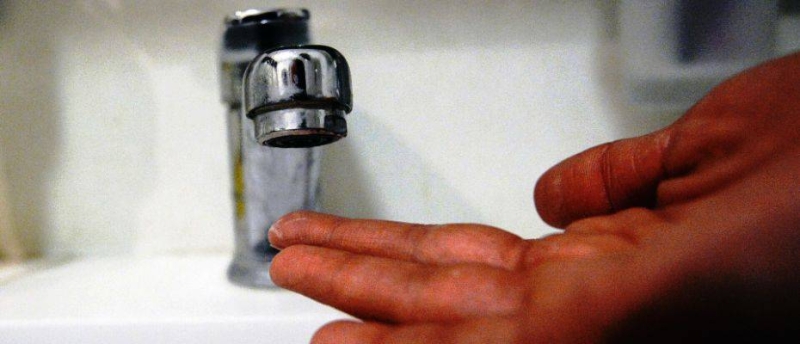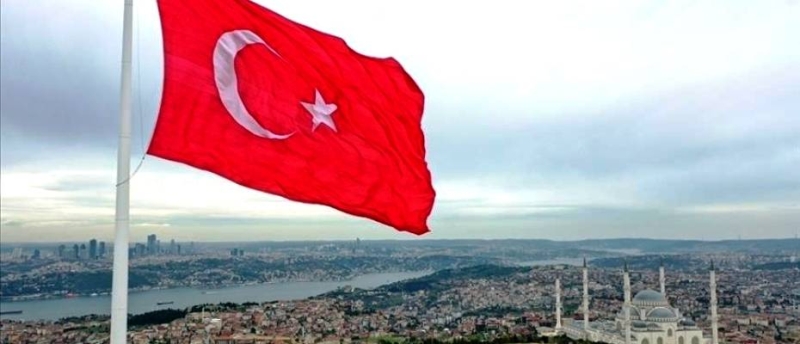Measures will be taken to prepare for the drought

The Catalan government is implementing a system for measuring water consumption in tourist establishments after Barcelona declared an emergency due to drought in February. Although this year the city experienced constant spring rains for the first time in four years, many residents and officials are concerned about the sustainability of Barcelona’s dependence on tourism. As a result, measures will be taken to prepare for the drought, reports euronews.com . Since residents are limited to consuming less than 163 liters of water per day per person, the tourism sector will take steps to impose restrictions, including emptying pools, installing warning signs and recommendations on water use, as indicated on elpais.com . The Catalan City Council met with hotel owners and representatives of the tourism industry in December 2023 and announced its goal to reduce water consumption by tourists to 200 liters per person per day. In addition, the Catalan Institute of Water Research is gathering a focus group, which includes stakeholders from the tourism industry, the Spanish Hotel Association and the Ministry of the Environment, to develop and implement a system for measuring water use in tourism activities, reports euronews.com . The water measurement system will be used to track the efficiency of water use by tourism enterprises and how they invest and use rainwater recovery. Even though the water situation worsened in 2023, there were no noticeable restrictions on the tourism sector. By the end of 2023, more than 12 million tourists stayed in hotels, tourist hotels and hostels, and tourist expenses, according to the Office for Economics and Economic Development, amounted to 9.6 billion euros. Tourism is one of the leading economic sectors in Barcelona and the surrounding region, accounting for more than 10 percent of local GDP in 2021 and 5.4 percent of Catalonia’s total GDP in 2022.Since this industry is so important for the city’s economy, many questions have arisen in connection with the declaration of a drought emergency in February. While local residents were limited to 200 liters of water per day, and they faced additional charges for exceeding this limit, and heavy fines for washing cars and watering lawns, there were fewer restrictions for the tourism sector: restrictions on water replacement in pools, warning signs and recommendations on water use.”We know that there are campaigns in the hotel sector to inform customers about the use of water,” Elvira Garcia, CEO of Barcelona Oberta, the Union of Shopping and Tourist Centers in Barcelona, told Euronews Green. “There are stickers and information about it, for example, in toilets and showers. It is recommended to take a shower for no more than four minutes,” she said. “Officially, the drought is not over yet, and we will see what else happens, especially next fall. If it is as dry as the previous three, then in winter we will again find ourselves in an emergency situation, and there will be a shortage of water in almost all sectors, but so far the summer has been saved,” explained the Director of the Catalan Institute for Water Resources Research (ICRA) Vicens Akunya Salazar Euronews Green. For Vicens and many others, the need to inform tourists about water shortages, as well as creating greater independence from the rains, is key to making Barcelona less susceptible to future droughts. “We are starting to gather a group of stakeholders from the tourism sector, representatives of the Spanish Hotel Association and, hopefully, the Spanish Ministry of the Environment, to develop and implement a system for measuring water use at tourist sites.” “In this case, every time you choose a hotel to stay in, you will see how effectively they use the water, whether they have invested in collecting rainwater and reusing it in the hotel, and similar practices.” In Barcelona, it is necessary to balance between concentrated periods of tourism in the summer and the use of water during the most severe months of drought. The drought has shown how vulnerable the city is to water shortages and why its tourism industry needs more effective water management strategies. The Catalan government will invest almost 2.5 billion euros in the Catalan Water Resources Agency (ACA) to manage water supplies and combat future droughts. The plan, designed for the period from this year to 2027, will triple previous investments, increasing the number of water production stations from 24 to 40 and increasing the production of water from the Besos River in Barcelona. In 2024, a floating desalination plant will be installed off the coast of Barcelona, which will produce 14 gm3 of water per year – 6 percent of the consumption of the metropolitan region, and from June construction will begin on 12 mobile desalination plants deployed along the northern part of the Costa Brava. These 10 million euro installations will supply 1,000 m3 of water daily, covering 35 percent of water consumption in more than a dozen municipalities.Recent rains have allowed Barcelona to avoid significant changes in the tourism sector and buy time to prepare for the inevitable “next time.” “Mass tourism is not part of the city’s strategy that we want. Companies understand that the path lies through sustainable development,” says Elvira Garcia in an interview with Euronews Green. “As increased heat and rare rainfall affect much of Spain and the Mediterranean region, new methods need to be introduced to ensure the short-term benefits of tourism for the region’s economy and the long-term sustainability of water resources.”

